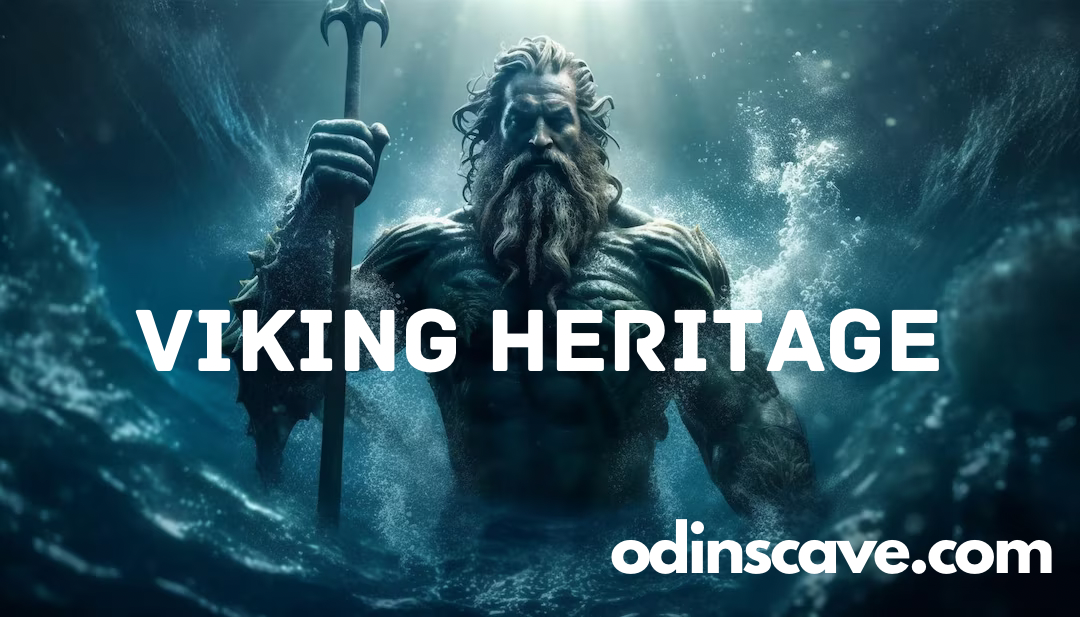The Legacy of the Norsemen: Delving into Viking Heritage
The Viking Age, spanning from the late 8th to early 11th century, is a fascinating period in human history marked by exploration, conquest, and cultural exchange. The Vikings, originating from the Scandinavian regions of Norway, Denmark, and Sweden, were much more than the ruthless warriors they're often portrayed as. They were seafarers, traders, and pioneers, whose influence still resonates in today's modern world. Let's embark on a journey to explore the rich Viking heritage. Explore Viking Rings for sale
Vikings, the name which roughly translates to 'pirate' in Old Norse, began their saga as explorers and settlers. They sailed the icy seas to distant lands, from the shores of North America to the gates of Eastern Europe, in their iconic longships. Their voyages were not merely for conquest but were driven by a desire for trade and exploration. They established settlements and trading posts, influencing local cultures and economies along their routes.
One of the most significant aspects of Viking heritage is their intricate art and craftsmanship. From their beautifully carved longships to their ornate jewelry, the Vikings were skilled artisans. Their art, often characterized by intricate knotwork and animal motifs, is reflective of their deep connection with nature and mythology. This art continues to inspire modern design, particularly in Nordic countries.
See our range of premium Viking bracelets and arm rings, perfect to show off your inner warrior.
In terms of societal structure, Vikings lived in a highly organized society. They had a well-defined law system and assembly, called 'Thing', where free men could voice their opinions and settle disputes. This idea of a communal assembly is considered a precursor to modern democratic institutions.
The Vikings were also known for their complex religious beliefs. They worshipped a pantheon of gods, each representing different aspects of life. The Viking mythology, full of tales about gods like Odin, Thor, and Freya, continues to captivate and inspire literature and media today, from novels to blockbuster movies.
Their language, Old Norse, gave birth to several modern languages, including Icelandic, Norwegian, Danish, and Swedish. Many English words, such as 'knife', 'husband', and 'egg', have Old Norse roots, demonstrating the linguistic impact of the Vikings.
Perhaps one of the most enduring aspects of Viking heritage is the concept of 'Viking Spirit.' This spirit was characterized by courage, resilience, and a thirst for exploration. This ethos is reflected today in the adventurous and pioneering spirit of the Nordic people.
Viking heritage is not confined to history books or museums; it is interwoven into the fabric of modern society, influencing our art, literature, language, and societal structures. The Vikings may have ceased to exist as a distinct group over a thousand years ago, but their legacy sails on, standing as a testament to their indomitable spirit and cultural richness.
So, the next time you see a Viking helmet or hear a tale about Thor and Loki, remember that these symbols and stories are echoes of a vibrant and rich heritage. They remind us of a fearless, explorative, and creative people who left an indelible mark on human history. The Vikings may have faded into the mists of time, but their heritage continues to inspire and influence us today.


Share:
Viking Longships, Legendary World of Viking Longships
Viking Rings: Ancient Symbols of Power and Faith